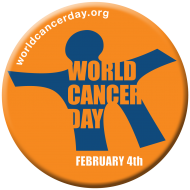We don’t need special foods for cancer prevention.
Buckminster Fuller was a true genius of our times, but he nearly killed himself with a special diet. He reasoned that because mankind was at the top of the evolutionary ladder he should also be at the top of the food chain, so for several weeks he ate only meat. After his collapse and hospitalization for kidney failure he decided he might be wrong about that. Because Steve Jobs occasionally purged himself by eating only fruit, and was a creative and successful man before he succumbed to pancreatic cancer, the actor Ashton Kutcher reasoned that a fruit-only diet might be a good idea. After his recent hospitalization for pancreatitis caused by that diet, I suspect he is now re-thinking that idea too.
I am an epidemiologist with a particular interest in studying how nutrition affects one’s risk of getting cancer. Over the past 30 years I have many times been struck by the constant parade of ideas about how cancer risk might be reduced by eating special foods, by taking special supplements, or by adopting particular cuisines.
You know the stories: one researcher or another makes headlines from studies in mice or in small groups of people indicating that cancer might be prevented if we were only to eat lots of broccoli sprouts, or pop vitamin pills, or adopt one particular diet or another. So far, the results of the most definitive studies designed to test these ideas have been disappointing: mostly ranging from no benefits to outright harm.
Several years ago I served on an expert panel to write a report for AICR/WCRF on the global perspective of diet and cancer. Our work was based on a comprehensive and systematic review of the literature about the relationship between cancer risk, diet, and physical activity among people around the world. I recall that my chief concern as we began that process was that we might not be able to achieve a consensus about nutritional factors that affect cancer risk because diets are so varied around the world. In the end, however, after we had sifted through thousands of studies, I was happy to realize that it was surprisingly easy to draw conclusions and make recommendations that were quite appropriate for all countries.
Cancer is now the leading cause of death in the world. More people will die today from cancer than from AIDS, TB, malaria, and childhood diarrhea combined.
It is increasingly clear that preventing chronic diseases will be the biggest global health challenge in this century. World Cancer Day is therefore an opportune time to reflect on the bigger picture of the role of nutrition in cancer across the globe. Organizations such as AICR/WCRF and more recently, the Gates Foundation, have estimated that the combined nutritional effects of the foods we eat, physical activity, and obesity are major preventable causes of cancer in the world. As we envision a world with better nutrition and less cancer, we need not be looking for special foods or vitamin pills or odd diets.
The AICR/WCRF recommendations to eat largely a plant-based diet, to be physically active, and to keep off extra body fat, can substantially reduce the risk of cancer in many different parts of the body as well as in many different parts of the world. That simple truth requires no special foods or particular cuisines, but it does require that we take it seriously. Both the individual choices and the public policies that support healthy eating and physical activity are simple, though sometimes not easy.
Tim Byers, MD, MPH, is an epidemiologist and associate dean at the Colorado School of Public Health. He blogs about research and various musings at Tuesdays with Tim.






Would you mind reflecting here on the new research on low calorie ketogenic diets for advanced cancers?
Good info. I believe that adding a detox at least once a week month or, even every 6 months will help to perhaps prevent Cancer. What are your thoughts on this? We just buried 3 this week stricken with Cancer. How sad that we haven’t found cure. i agree that it is preventable. Need to teach others about prevention. Good article. Thanks Shirley